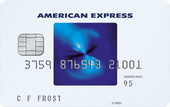If you are an Australian in university or TAFE, then life will often involve tight budgets, part-time gigs, and the first jump into building credit history, all while juggling textbooks, transport, and takeaways. For Australian students researching the best student credit cards, finding one with low fees, manageable interest rates, and practical features can make a real difference in financial confidence.
Unlike overseas options, Australian cards aren’t labelled or dedicated for students, but many are tailored for beginners with low income thresholds and credit building potential.
We spoke with several students from Australia and asked their opinion on their first credit card, we then researched other cards available and found 5 top picks, each excelling in a key area to suit different needs, based on current offers as of July 2025.
Whether you’re a local undergrad or international student, these cards help establish responsible habits without overwhelming costs.
1. G&C Mutual Bank Low Rate Visa Credit Card

Top pick for lowest interest rate
For students wary of high borrowing costs, the G&C Mutual Bank Low Rate Visa Credit Card delivers Australia’s lowest purchase rate at 7.49% p.a., keeping any carried balance affordable.
With a modest $50 annual fee and up to 55 days interest-free on purchases, it includes basic fraud protection and compatibility with digital wallets like Apple Pay.
No sign-up bonuses are listed, but the card’s low credit limit options (from $1,000) make it easy to start small. Eligibility is straightforward for those over 18 with Australian residency, often requiring proof of student status or part-time income.
Why it appeals to students: The rock-bottom rate minimises interest on essentials like laptops or course fees, perfect for those occasionally needing to spread costs while focusing on studies.
Jake, a second-year TAFE apprentice from Brisbane, told Carousel Bondi: “This card’s interest rate has saved me heaps on my tools and materials—it’s given me peace of mind without the worry of snowballing debt.”
2. Virgin Money No Annual Fee Credit Card

Top pick for no annual fee
Students prioritising zero upkeep costs will appreciate the Virgin Money No Annual Fee Credit Card, which waives the annual fee entirely while offering 0% p.a. on purchases for the first 6 months (reverting to 19.99% p.a.).
Features include up to 55 days interest-free, balance transfer options, and Velocity Frequent Flyer points earning on eligible spends. It’s accessible with a minimum credit limit of $2,000 and supports digital wallets for seamless transactions.
Why it appeals to students: Eliminating annual fees frees up funds for study supplies or social outings, with the intro period providing breathing room for new cardholders building habits.
Sophie, an international student in Sydney, says: “No annual fee meant I could get started without extra pressure on my budget—I’ve used the points for flights home, which feels like a win during exam season.”
3. Coles No Annual Fee Mastercard

Top pick for rewards
If earning perks on everyday spends sounds appealing, the Coles No Annual Fee Mastercard stands out by awarding 1 Flybuys point per $2 spent, redeemable for groceries, fuel discounts, or gift cards—all without an annual fee.
It offers up to 55 days interest-free on purchases, with a standard rate of around 19.99% p.a. (exact rate not specified in listings), and low entry barriers for students over 18. Additional perks include fraud monitoring and mobile wallet integration.
Why it appeals to students: Rewards turn routine buys like snacks or petrol into savings, ideal for budget-conscious learners who shop at Coles and want value without complexity.
Liam, a uni student in Perth juggling part-time work, notes: “The Flybuys points add up quickly on my weekly shops—it’s helped me stretch my student allowance further for weekend trips.”
4. ANZ Low Rate Credit Card

Top pick for balance transfers
For students consolidating small debts or starting fresh, the ANZ Low Rate Credit Card excels with 0% p.a. on balance transfers for 26 months (3% fee applies, reverting to 21.99% p.a.).
The ongoing purchase rate is 13.74% p.a., with the annual fee waived in the first year ($58 thereafter), up to 55 days interest-free, and support for up to three additional cardholders. Minimum credit limit is $1,000, making it student-friendly.
Why it appeals to students: The extended transfer period helps clear existing charges interest-free, supporting those transitioning from debit to credit while managing study loans.
Emma, a final-year undergrad in Adelaide, comments: “Transferring my old balance here let me pay it off without interest eating into my savings—it’s been a game-changer for focusing on my career launch.”
5. American Express Low Rate Credit Card

Top pick for flexible payments
Students seeking payment versatility should consider the American Express Low Rate Credit Card, which allows splitting purchases over $100 into 3, 6, or 12-month instalments with no interest (fixed fee applies).
It boasts a 10.99% p.a. purchase rate, $0 annual fee, up to 55 days interest-free, and up to four extra cards at no cost. Widely accepted, it includes refund protection and digital wallet compatibility, with a low $500 minimum limit.
Why it appeals to students: Instalment options make big buys like textbooks manageable, fostering responsible credit use without high fees.
Alex, a postgraduate in Melbourne, adds: “The instalment feature turned my laptop purchase into easy monthly payments and it’s help to build my credit score which has also helped keep my stress lower during thesis time.”
Choosing the best student credit Card for your journey
When researching the best student credit cards, weigh your spending patterns, you should opt for a low-interest card if you might carry a balance, or rewards if you pay off monthly.
All these cards require you to be at least 18, an Australian resident (or on a valid visa for international students), and often proof of income or enrolment.
Interest rates hover around 7-20% p.a., so aim to pay in full to avoid charges. Compare credit limits (starting low builds history safely) and check for foreign transaction fees if studying abroad.
Before applying, review your budget and terms—eligibility varies, and responsible use is key to avoiding debt. Consult providers or a financial advisor for personalised advice.
Disclaimer: Offers, rates, and terms are subject to change. Verify with issuers for the latest 2025 details and eligibility.









